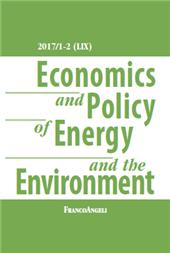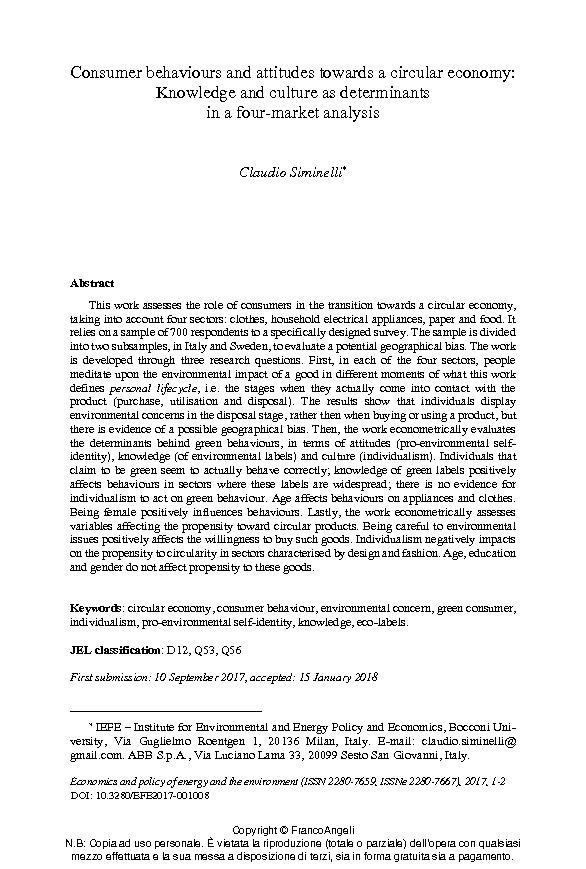Consumer behaviours and attitudes towards a circular economy : knowledge and culture as determinants in a four-market analysis
135-169 p.
This work assesses the role of consumers in the transition towards a circular economy, taking into account four sectors: clothes, household electrical appliances, paper and food. It relies on a sample of 700 respondents to a specifically designed survey. The sample is divided into two subsamples, in Italy and Sweden, to evaluate a potential geographical bias. The work is developed through three research questions. First, in each of the four sectors, people meditate upon the environmental impact of a good in different moments of what this work defines personal lifecycle, i.e. the stages when they actually come into contact with the product (purchase, utilisation and disposal). The results show that individuals display environmental concerns in the disposal stage, rather then when buying or using a product, but there is evidence of a possible geographical bias.
Then, the work econometrically evaluates the determinants behind green behaviours, in terms of attitudes (pro-environmental self-identity), knowledge (of environmental labels) and culture (individualism). Individuals that claim to be green seem to actually behave correctly; knowledge of green labels positively affects behaviours in sectors where these labels are widespread; there is no evidence for individualism to act on green behaviour. Age affects behaviours on appliances and clothes. Being female positively influences behaviours. Lastly, the work econometrically assesses variables affecting the propensity toward circular products.
Being careful to environmental issues positively affects the willingness to buy such goods. Individualism negatively impacts on the propensity to circularity in sectors characterised by design and fashion. Age, education and gender do not affect propensity to these goods. [Publishers' text].
-
Artikel aus derselben Ausgabe (einzeln erhältlich)
-
Informationen
ISSN: 2280-7667
KEYWORDS
- Circular economy, consumer behaviour, environmental concern, green consumer, individualism, pro-environmental self-identity, knowledge, eco-labels



